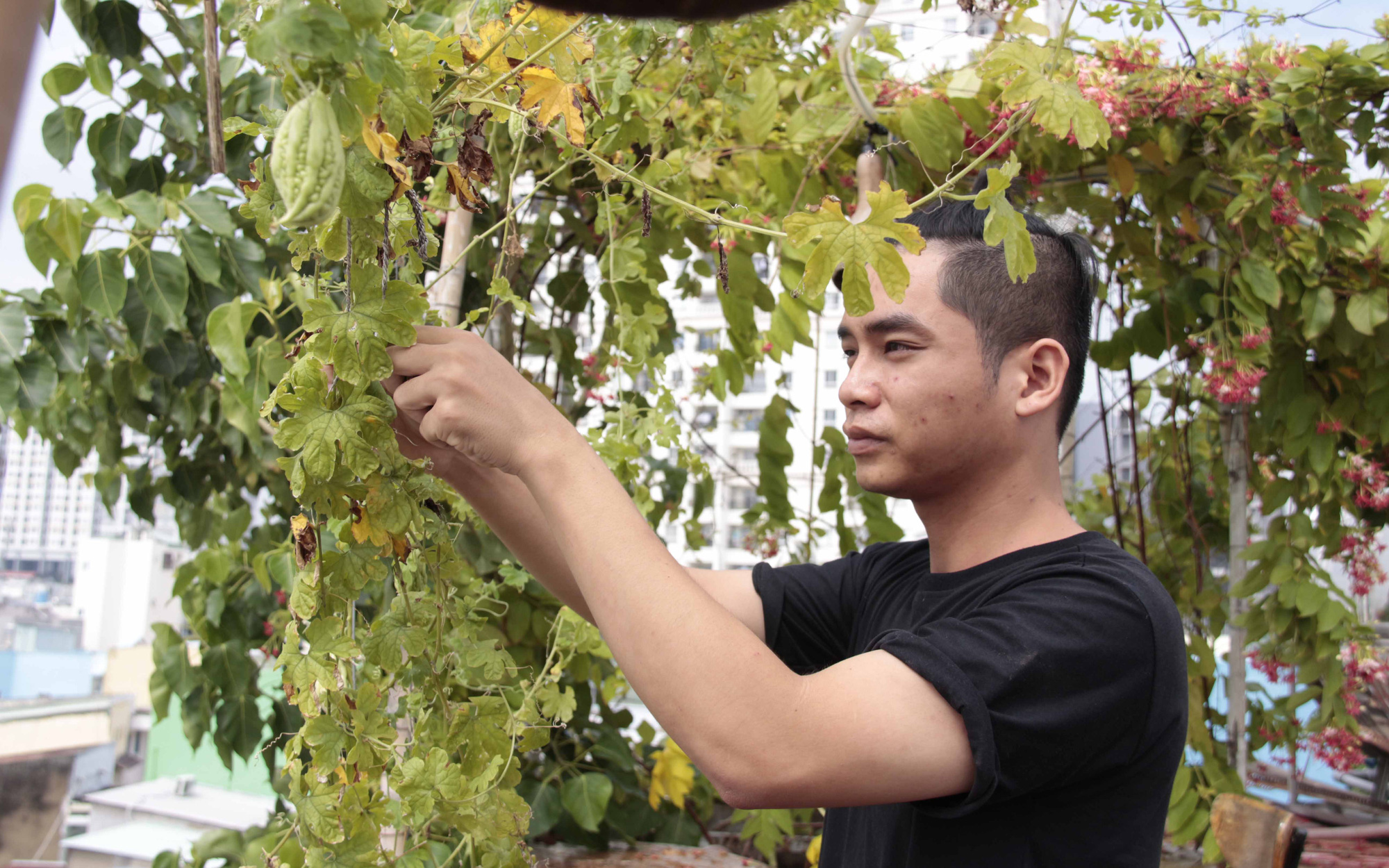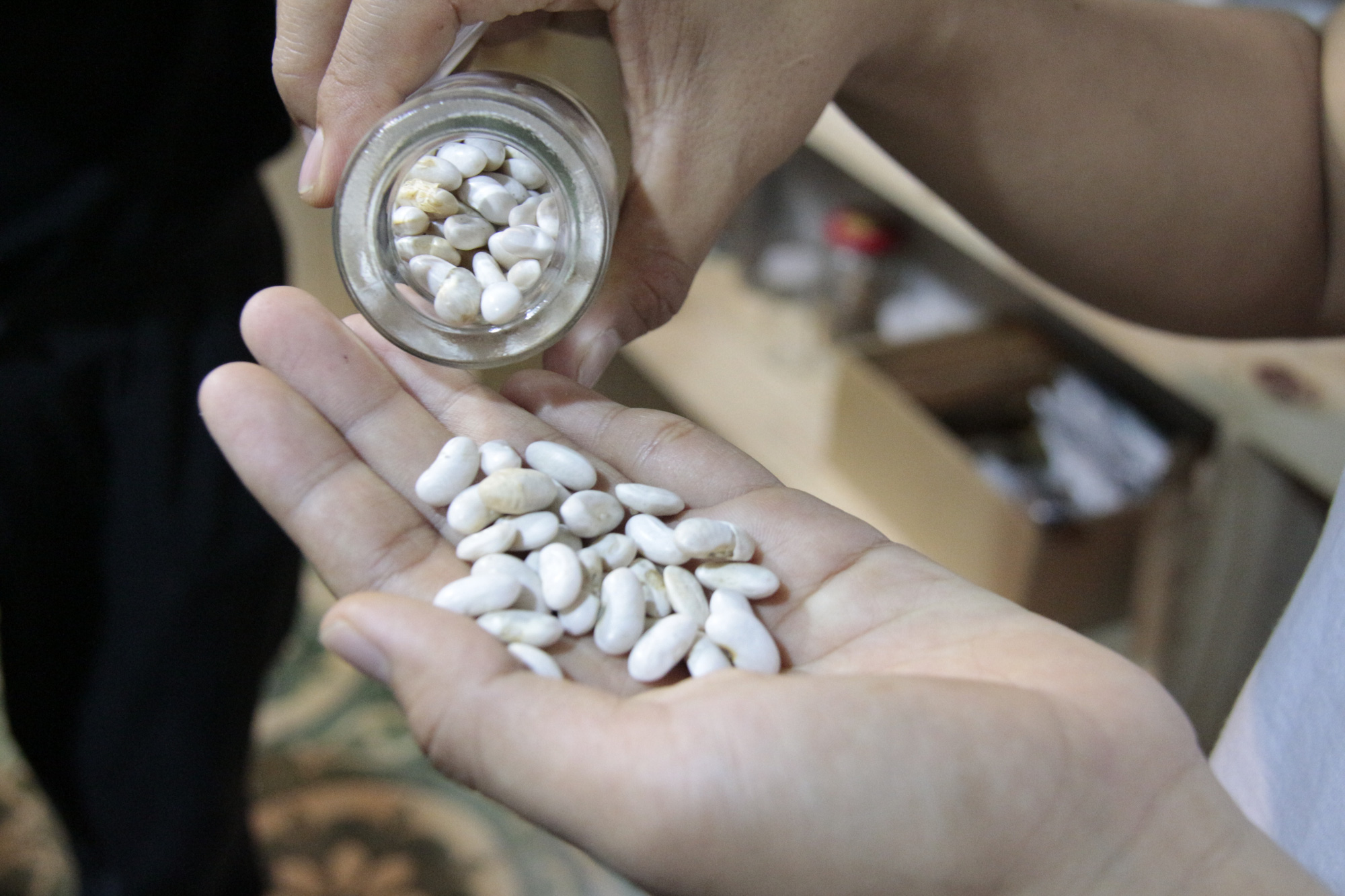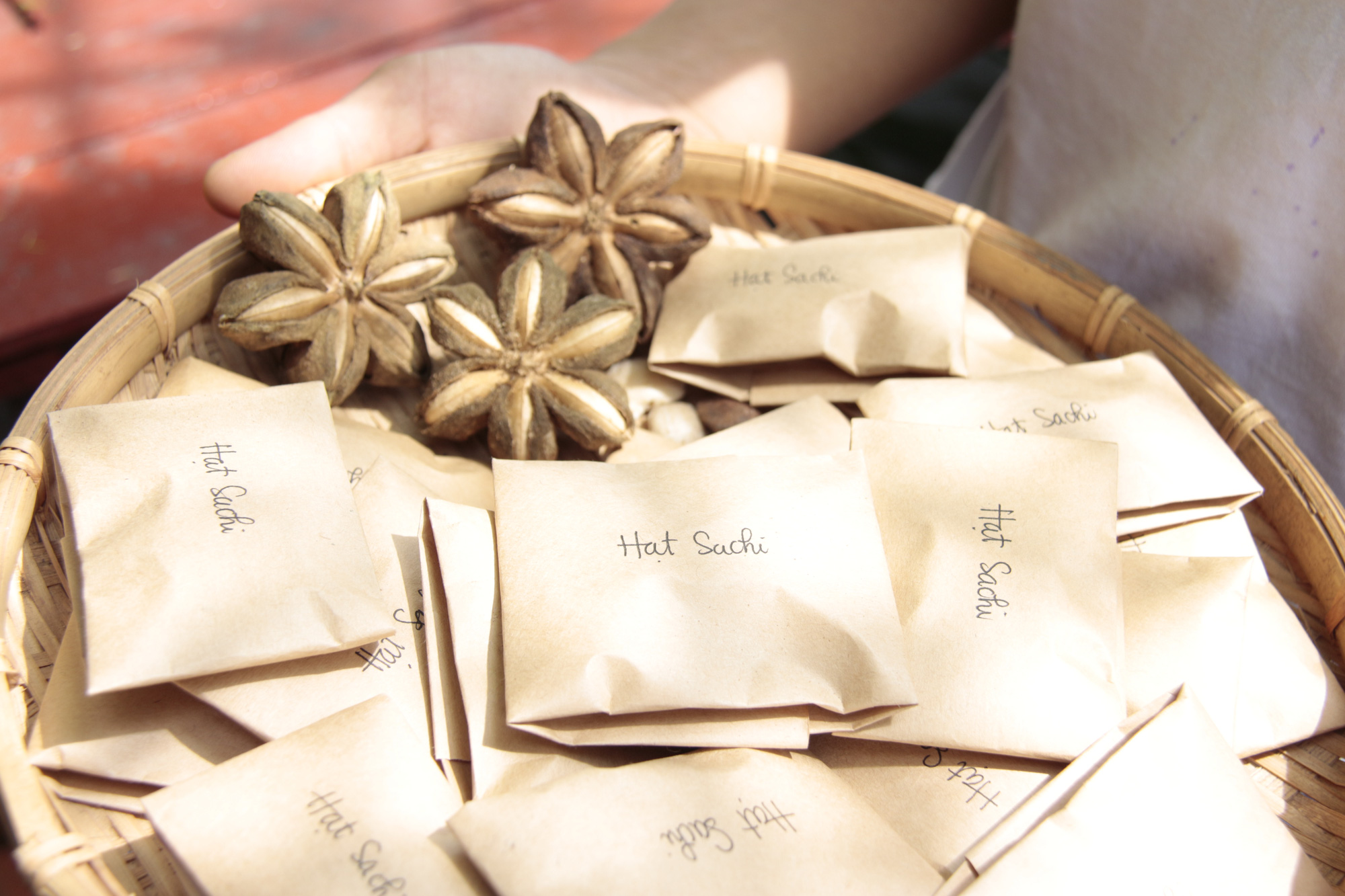Two Ho Chi Minh City residents are building a seed bank of heirloom breeds which they hope to share with aspiring botanists from around the country.
The Heirloom Seeds Archive was founded by environmental activists Minh Thu, 34, and Hai Dang, 27.
The duo runs the archive out of Mzung Space, a community hub dedicated to films, arts, and environmental initiatives, where they stock over 20 seed types, including calabash, amaranthus tricolor, sponge gourd, sacha inchi, fennel, bitter melon, French bean, and daisy.
Despite regular seeds for these plants being widely available, heirloom forms are extremely difficult to find, they said.
Admittedly, Thu and Dang use the term heirloom loosely as there are no reliable sources of heirloom seeds at the moment in Vietnam.
According to Thu, for seeds to meet her archive’s standards, they must be cultivated using permaculture rather than monoculture, have origins that can be traced through multiple generations, and be sourced from reliable partners.
The archive’s strict criteria for seed selection limit them to a select few trusted suppliers, such as Nha Cuoi Garden in the Central Highlands city of Da Lat, the environmental nonprofit Saigon Compass, and certain local permaculture communities.
Thu and Dang face an uphill battle of ensuring the success of the archive.
Vietnamese farmers lean toward manufactured seeds rather than preserving seeds from previous crops for convenience reasons.
This habit has been ingrained in the locals for generations while plant propagation has gradually fallen by the wayside.
“Manufactured seeds produce [filial generation] seeds that are incapable of yielding crops in the next season. What would happen if seed suppliers vanish? How would the farmers cope? From where would we source our food?” Dang asked rhetorically.
|
|
| Heirloom seeds stored at the Heirloom Seeds Archive at Mzung Space in District 4, Ho Chi Minh City. Photo: Cong Trieu / Tuoi Tre |
Sow it forward
The initiative organized an event at Mzung Space in mid-July to offer seeds and cultivation tips and tricks to young local gardeners.
Mzung Space, located on Ben Van Don Street in Ho Chi Minh City’s District 4, is a stark contrast against the concrete neighborhood it calls home thanks to the lush greenery that engulfs the building.
“I was impressed by their archive and their dedication to sharing their seeds. Thanks to Thu and Dang’s advice, daisy, sponge gourd, and melon that I grow always turn out great,” said Nam Phuong, an event-goer.
As payment for their seeds and advice, Thu and Dang simply ask others to pay it forward by sending seeds from their crops back to the archive.
“Seeds after a crop should be passed down from one person to another to extend [the breed’s] longevity as long as possible. Each person who uses a plant’s seeds can then continue that plant’s tradition by sending five of its seeds to others. This is a step toward creating sustainable agriculture,” Thu explained.
|
|
| Packets of heirloom seeds are prepared as giveaways at Mzung Space in District 4, Ho Chi Minh City in a provided photo. |
The toughest part of this project, according to Dang, is ensuring the longevity of seeds under preservation.
Many varieties of seed can only be kept for one to two years at room temperature. Even at lower temperatures, many do not live longer.
It takes a consistent effort through different phases of a seed’s life — sowing, sprouting, and thriving — for it to reach its full potential, Dung explained.
Dung and Thu now have their sights set on establishing a network of farms and gardens that practice sustainable agriculture and are willing to propagate the use of heirloom varieties in cultivation.
“We are also looking for help and consultation from agriculturalists so that we can develop a more streamlined path for our project,” Dang said.
Like us on Facebook or follow us on Twitter to get the latest news about Vietnam!



















































